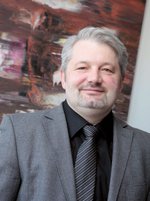
Dear Reader,
The present Research Report is the fourth of its kind from the youngest of the ten largest universities in Germany. We are very pleased to have attracted your interest in the diverse research activities of the faculties at the University of Duisburg-Essen (UDE).
For people in the Ruhr region, 2010 will long be remembered as the Capital of Culture year. The cultural highlights of RUHR.2010 were accompanied by many high points in science and academia. The universities of the Ruhr region have moved closer together in the University Alliance Metropolis Ruhr (UAMR). Here in the region – as the present report also demonstrates – the University of Duisburg-Essen is a partner with a strong and active research profile.
“Excellent – with or without participation in the Federal Government’s Excellence Initiative” could be the motto under which research at the University of Duisburg-Essen takes place. The Faculties and the Rector’s Office share a commitment to attracting highly qualified researchers to the UDE. One such example is Dr. Enrico Rukzio, who has now taken up a junior professorship in Mobile Human-Computer-Interaction with Software Services. The 33-year old is heading an Emmy Noether Research Group at the UDE. In 2010 we were also successful in securing two of four junior research groups under the NRW returning researchers programme. Professor Tina Kasper and Professor Sebastian Kaiser have since taken up their professorships at the UDE and are leading junior research groups working in the field of nanotechnology.
In April 2010, 123 young researchers from 38 countries came together for the annual meeting of the Alexander von Humboldt Foundation scholarship holders. This networking conference presented an ideal opportunity for the Humboldtians to get to know each other and learn more about the UDE – as the university representing Germany as a research location – and aspects of life and research in the country.
One of the high points of research in the period covered by the report was the approval of a Käte Hamburger Collegium, an international research centre on “Political Cultures of World Society” funded by the Federal Ministry of Education and Research (BMBF) for an initial six years. The Collegium originated from a joint initiative of the Institute for Advanced Study in the Humanities Essen (KWI, Professor Claus Leggewie), the German Development Institute in Bonn (DIE, Professor Dirk Messner) and the Institute for Development and Peace at the UDE (INEF, Professor Tobias Debiel). The Colleguim is scheduled to begin work at the University of Duisburg-Essen at the beginning of 2012. Käte Hamburger Collegia are international centres for advanced study in the humanities. They aim specifically to establish clear priorities in their field and as landmark projects ensure the international visibility of German research.
The researchers of the UDE have done a remarkable job of acquiring third-party funding over the past few years. The University of Duisburg-Essen compares very positively with other institutions in the state in attracting external funding for research projects. In the last two years UDE researchers have virtually doubled the amount of research funds with some 100 million euros in third-party funding. This increase is well above the 13 percent average of the 29 higher education institutions in the state. In terms of the DFG’s competitive research projects, funding at the UDE even trebled by comparison with its 2007 level.
The situation is similar for EU research funding. Here too the results are impressive: up to October 2010 the UDE was granted 16 percent more EU funds under the 7th Framework Programme (FRP) than in the entire 6th FRP (see table). The 7th FRP still has until 2013 to run. This takes the UDE from 6th to 4th place in the NRW ranking, where it shares the highest rate of growth with TU Dortmund University. Information and Communications Technology was the most successful area in attracting EU funding at the UDE.
One of the reasons for these successes is that the University has set the right priorities in its main areas of research and also has an excellent standing in various fields. The far-sighted appointments policy of recent years has also brought rewards. The level of cooperation between researchers in Europe has risen significantly over the years, and the UDE is becoming increasingly attractive to scientists and academics with a strong research profile. In this context special attention must be drawn to the constructive support provided to researchers by central facilities such as the Science Support Centre (SSC).
As you see, our young University of Duisburg-Essen is pooling its strengths and resources to continue sharpening, developing and consolidating its profile. The latest Research Report shows that we are on the right track. The eleven faculties are a sound basis for the research activities at our dynamic University, where innovative, research-based teaching meets internationally outstanding science and research. The highly prestigious awards and distinctions received by the researchers at our University and cooperation with research institutions around the world testify to this.
I hope that the Research Report 2010 will bring you many new insights into the fascinating world of research at the University of Duisburg-Essen and proves to be an interesting and enjoyable read.

